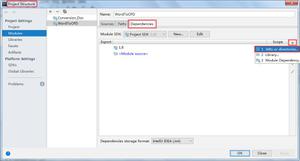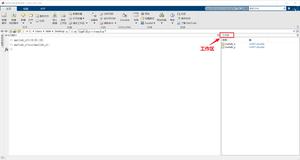python实现pdf转换成word/txt纯文本文件
本文实例为大家分享了python实现pdf转word/txt,供大家参考,具体内容如下
依赖包:pdfminer3k
可以通过pip安装;也可以到官网下载,解压,进入文件夹,输入命令setup.py install安装软件。
源代码:
#!/usr/bin/python
# -*- coding: utf-8 -*-
import sys
import importlib
importlib.reload(sys)
from pdfminer.pdfparser import PDFParser,PDFDocument
from pdfminer.pdfinterp import PDFResourceManager, PDFPageInterpreter
from pdfminer.converter import PDFPageAggregator
from pdfminer.layout import *
from pdfminer.pdfinterp import PDFTextExtractionNotAllowed
'''''
解析pdf文件,获取文件中包含的各种对象
'''
# 解析pdf文件函数
def parse(pdf_path):
fp = open(pdf_path, 'rb') # 以二进制读模式打开
# 用文件对象来创建一个pdf文档分析器
parser = PDFParser(fp)
# 创建一个PDF文档
doc = PDFDocument()
# 连接分析器 与文档对象
parser.set_document(doc)
doc.set_parser(parser)
# 提供初始化密码
# 如果没有密码 就创建一个空的字符串
doc.initialize()
# 检测文档是否提供txt转换,不提供就忽略
if not doc.is_extractable:
raise PDFTextExtractionNotAllowed
else:
# 创建PDf 资源管理器 来管理共享资源
rsrcmgr = PDFResourceManager()
# 创建一个PDF设备对象
laparams = LAParams()
device = PDFPageAggregator(rsrcmgr, laparams=laparams)
# 创建一个PDF解释器对象
interpreter = PDFPageInterpreter(rsrcmgr, device)
# 用来计数页面,图片,曲线,figure,水平文本框等对象的数量
num_page, num_image, num_curve, num_figure, num_TextBoxHorizontal = 0, 0, 0, 0, 0
# 循环遍历列表,每次处理一个page的内容
for page in doc.get_pages(): # doc.get_pages() 获取page列表
num_page += 1 # 页面增一
interpreter.process_page(page)
# 接受该页面的LTPage对象
layout = device.get_result()
for x in layout:
if isinstance(x,LTImage): # 图片对象
num_image += 1
if isinstance(x,LTCurve): # 曲线对象
num_curve += 1
if isinstance(x,LTFigure): # figure对象
num_figure += 1
if isinstance(x, LTTextBoxHorizontal): # 获取文本内容
num_TextBoxHorizontal += 1 # 水平文本框对象增一
# 保存文本内容
with open(r'test.doc', 'a',encoding='utf-8') as f: #生成doc文件的文件名及路径
results = x.get_text()
f.write(results)
f.write('\n')
print('对象数量:\n','页面数:%s\n'%num_page,'图片数:%s\n'%num_image,'曲线数:%s\n'%num_curve,'水平文本框:%s\n'
%num_TextBoxHorizontal)
if __name__ == '__main__':
pdf_path = r'test.pdf' #pdf文件路径及文件名
parse(pdf_path)
此脚本只能将pdf文件转换成纯文本文件,没有任何格式。
以上是 python实现pdf转换成word/txt纯文本文件 的全部内容, 来源链接: utcz.com/z/319094.html






